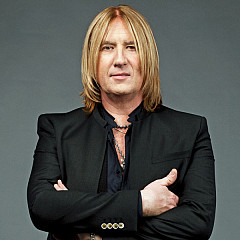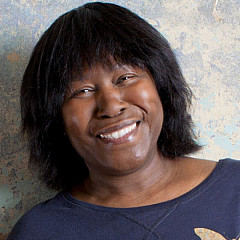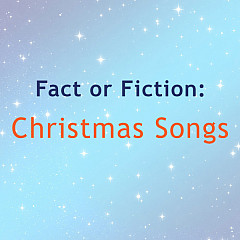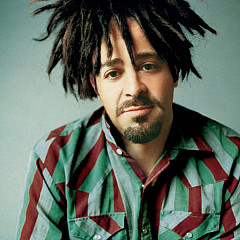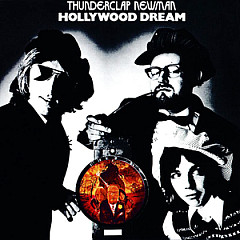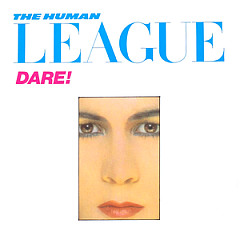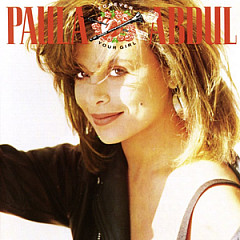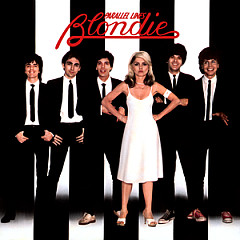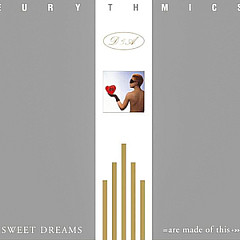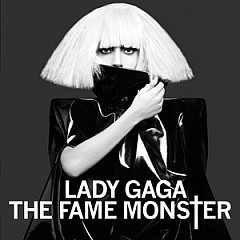Floyd Marcus: In a very short time we had about six releases. We actually had three gold records, which I don't think most Bubblegum people had. And our songs were covered - like "Indian Giver" was covered by the Ramones - which showed there was some kind of effect on the next generation.
Songfacts: Who do you think started Bubblegum music?
Floyd: I think there's always been Bubblegum music. I think anything that was lighthearted, that wasn't of a social or very sexual nature in music, it was always kind of bubblegummy. I think that in the early '60s a lot of the artists were Bubblegum before it was called Bubblegum. You had the Bobby Vees, and people like that doing music that people enjoyed, and it seemed to somehow at one point get a bad name. But I can't say any one person, really, was at the forefront of it.
Songfacts: Besides Bobby Vee, are there any other examples of artists that you would have considered Bubblegum before it was called Bubblegum?
Floyd: A lot of the girl singers, like Chiffons come to mind, "He's So Fine." Linda Scott, "I Told Every Little Star." There was an awful lot of light music without social commentary. It was about love, it didn't include a lot of graphic description, and it was kind of up-music, it was fun music. It was more for a naive-er younger group. Now you have rap and you have kids listening at 10 and 12 years old, there's a lot of heavy content in it. There's a segment, I think, of kids that really are kind of isolated from all that stuff.
Songfacts: Who do you think coined the phrase "Bubblegum"?
Floyd: I had a song on the first album, it was called "Bubble Gum World." And we've never been able to verify this, but we heard that somewhere in one of the major magazines somebody coined the phrase "Bubblegum Music," directly related to that song, "Bubble Gum World."
Songfacts: That was your composition, correct?
Floyd: Yeah.
Songfacts: What's the story behind that song?
Floyd: I wrote a lot of different stuff back then. Before the band started, even, we were all fans of heavier music. We were fans of Hendrix and The Beatles and The Stones, and Cream, and Yardbirds to The Animals. But I just tended to write whatever. It was: "You think you're in a bubblegum world playing in sandboxes, too, I'd just like to tell you, girl, you're too old to think it's true." I was playing on the words a little bit, and there was a pretty wide range, a pretty big spectrum of music in the '60s. I point this out to my kids, who are now 25 and 23 and 20, that there was a pretty diverse terrain of music back then, from about '64 to '69. So I really didn't think about whether the song was light or bubblegummy. I just kind of wrote this song playing with those lyrics. And Jeff Katz and Jerry Kasenetz who were our producers, when they heard a lot of the songs, they liked them, they thought they would fit. So it wound up on our first Fruitgum Company album.
Songfacts: How did the Fruitgum Company get its name?
Floyd: The famous story is that Frank was up in the attic, and he came across a wrapper from 1910 that was a wrapper for gum. (Frank Jeckell is another original member of the Fruitgum Company.) Since then, I have researched it a little bit. Gum was already being marketed in the 1800s, but we like to leave it that Frank has a machine, it's a slot machine, and it says 1910 Bell, and it's got the fruit on it. Frank actually has one in his pinball machine and slot machine collection. So we're not exactly sure how the name was developed, it just sort of came along between us and management.
Songfacts: But the phrase "Bubblegum" was really not prevalent when the band was named?
Floyd: No, there wasn't really a genre at that time. I guess it partially came as a rebellion against the music. There was so much social commentary in music back then. There was a lot of sexual innuendo. There was so much serious content in the years of the Vietnam War - all the rebellion, all the drug culture that was going on.
When these songs were released, especially "Simon Says" being the first one in '68, a lot of people didn't take to it, feeling it didn't have a lot of substance. But looking back in retrospect, we feel that its time had come, because people in that 5 year period were kind of tired of all the heaviness of music. There was Jimi Hendrix, there was The Doors, Zeppelin came on the scene around '69. The Beatles had morphed from this Pop group into Sergeant Pepper. It was getting heavier out there. People wanted a rest from all that. So when "Simon Says" came out, and "1, 2, 3, Red Light" came out, and "May I Take A Giant Step" came out, there was a market that we were playing for. And that was probably the young teenager that was neglected in the industry with all the music that was coming out. But I think it caught on with a lot of older people, too. We find that out on the road, when we're out on the road, our fans weren't just little kids coming to see us. They were girls and guys our age: 18, 19 years old, 20 years old, who were into the music.
Songfacts: Can you tell me specifically about the song "Simon Says," how that came about?
Floyd: "Simon Says" was written by Elliot Chiprut, and I guess Jeff and Jerry had produced it with some other groups before. When it was presented to us, it was presented almost like "The Calypso Song," believe it or not. And we thought what the heck is this? You know. "Simon Says." And we were kind of goofing around with it in the studio at the time. Frank and I both remember it differently, but somehow one of us kind of said, "Let's do it like 'Wooly Bully.'" And we wound up counting it off and doing that whole intro to "Wooly Bully" - "It's time to play Simon Says." Over the talkback speakers they scream, "That's it, that's it, they love the idea." So we went on and recorded that day.
Songfacts: Who is Elliot?
Floyd: Elliott Chiprut was one of the writers that Jeff and Jerry used to bring in. Somebody who they felt had a song that could fit into their business plan. At the time their business plan was to focus on this neglected age group and market records and songs to that age group. So Elliott was just one of the people they happened to bring in. We did write our own tunes. We did get enough of our tunes on the albums. Actually, I wrote the song "Keep Your Thoughts On The Bright Side," and Jeff and Jerry had proposed that to Neil Bogart as their second release. But the record company had a plan for us. They wanted to stick with the game genre, they liked that. So the next release was "May I Take A Giant Step."
Songfacts: What was the role of Jeff and Jerry on the band?
Floyd: They heard our demo. The band was originally Jeckell And The Hydes, a play on Frank's last name, Frank Jeckell. And he at the time was like the guitar guy in our town of Linden, New Jersey. And when he and Steve Markowitz, the original bass player, approached Pat and I, it became The Odyssey. We used to rehearse. My uncle, who had written songs like "Till Then" by The Classics and the Mills Brothers, and "Don't Let Me Be Misunderstood," by Nina Simone and then The Animals, he liked what I was writing at the time. We went in and we did a demo in Big Charles Studio in New York, which was like the premiere demo studio back then, with the old acetates. Jeff and Jerry heard it through a friend of Pat's, and they liked the band. We met with them, and originally we spoke with them. We wanted to get all the B-sides of the 45s, and all the B-sides of the albums. And they had their game plan, they had had "A Little Bit Of Soul" by The Music Explosion, and they were already planning other records like The Ohio Express and some lesser-known groups. When they took us in the studio, we went along with what they proposed to us, which was "Simon Says," and then after that "May I Take A Giant Step," and all the stuff we did on those first two albums. We had a pretty okay relationship with them in the beginning, but it turned out a little rough in the end, because the B-side of "Simon Says" got played, which was the Reflections' "In The Looking Glass," and it was more of a Psychedelic song. And they had to snuff it with the record company, because they felt it would hurt "Simon Says" chances, and because of that, they were a little afraid to record our material. So that's how chasms started growing between us at that point.
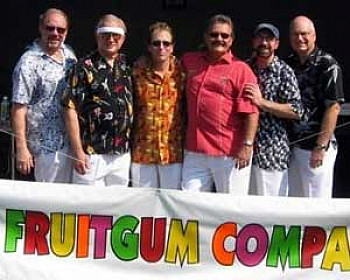 Songfacts: Jeff and Jerry, what was their role?
Songfacts: Jeff and Jerry, what was their role?Floyd: Producer-management. They were super K at the time, and they wound up making a deal with Buddha Records Neil Bogart, and spearheading this whole marketing plan. So they had a pretty strong role in the whole thing.
Songfacts: And you all worked for Buddha Records?
Floyd: Yeah, we all worked for Buddha.
Songfacts: The next song after "Simon Says," the "1, 2, 3 Red Light." Can you tell me about that?
Floyd: Well, first there was "May I Take A Giant Step," which didn't really go anywhere. "1, 2, 3," we were on the road, and the guy who sang the first song, Mark, was the youngest of us, and the easiest to manipulate. We were on the road at a radio station, and the jock turned around to us and said, "What about your new record, '1, 2, 3 Red Light?'" and we all kind of looked at each other, except for Mark. We really didn't have any knowledge of the record at that time. So we got through the interview, and then we found out that Jeff and Jerry had done the record, and Mark had already done the vocals. We were on the road, and it was a lot easier for Jeff and Jerry to keep us out there. We were earning money and promoting the 1910 Fruitgum Company, it was really doing pretty well. So Jeff and Jerry really had no reason to pull us in. But we were a bunch of young, cocky guys. We were a lot better musicians than people knew. And so when we found out about the record, we learned it on the road. And we started performing it. They had a group - most of the guys were from The Tradewinds, and they already had a record out. And they started forming their own little in-house thing. That's where the story of these studio musicians having done all the Bubblegum came from. It wasn't really true in our case, or in Joey Levine's case with Ohio Express, or even in the case of The Music Explosion. They were all real bands, and they all had talent. But somehow there was this myth of lies that all this Bubblegum stuff was done by studio guys.
Songfacts: Well, you did have that one hit that was done by the studio guys. What about the subsequent songs?
Floyd: There was some stuff after that. But if you really look at the history, the first three records were really where it happened. And we started rebelling after that, me more than the other guys. First our bass player left - we were on tour, so we went on without him. One of the other guys played bass until we got back. And then I left. So after that, that was the end of my time with them at that point. And then they went on to do "Indian Giver," which was a gold record.
Songfacts: But, Floyd, you guys have it sprung on you that your new single is this song that, all except for Mark, you had no part of. And then from there, do you guys continue to record, or from that point forward is it all studio compositions?
Floyd: No. I was hedging on whether I was going to stay or not. We expressed our feelings about that to our management, and expressed our verbal agreement to them. And the next album, "1, 2, 3 Red Light." I was in the studio for most of
that with the original guys: Pat, Steve, Frank, and Mark. And we recorded a lot of the tracks on that album and subsequent albums. After I finally did go, there were lineups that recorded most of the studio stuff, but occasionally when a single came along again, they would have people do it in the studio and later add Mark's voice. The group's on the road, and they had more control if they had some guys in the studio that were doing exactly what they wanted. It was more leisurely, they could spend more time recording the singles and getting them the way they wanted to.
Songfacts: Okay. Tell me about the image that the group was expected to put forth.
Floyd: You know, there really wasn't any image we were expected to put forth. We used to dress pretty much like a lot of the groups back then. There was a point we were wearing Nehru jackets and shirts and brocade jackets, and all the flashy stuff that we saw other guys wearing. There was a preponderance of stores back then. You could go into The Village, or go into Chicago in old town and pick up rock star clothing, which you can't really get today.
Before we became the Fruitgum Company, we were still The Odyssey, we used to do everything from Hendrix and Cream and The Rascals, and Motown, and Steppenwolf, and The Stones, Marvin Gaye. We did all of that. We did Vanilla Fudge, for instance. And there was a time when we came to a town and Vanilla Fudge was supposed to be playing at this venue, and they cancelled, and who do they put in there but The 1910 Fruitgum Company. So when the local DJ announced that we were going to perform, there was a lot of booing. They didn't like the fact that Vanilla Fudge "You Keep Me Hanging On" was going to be replaced by us. But the DJ was a nice guy, and he happened to go out and he said, "Well, give these guys a chance. You know, really." And we decided to do "You Keep Me Hanging On" because we had done it a long time. And by the time we got through that and did a few other songs, we really surprised the audience. We won them over and they were really on our side.
When we were touring with The Beach Boys, we did a 10-date tour with them, and I overheard a few remarks from them about the Fruitgum Company opening up their shows. And I was always up for a challenge, so I turned to the guys and we talked about doing something. And we went on and did an electric flag slide, you know, for the Electric Flag album. And they were kind of surprised at that. So the image we projected on the road had nothing to do with "Simon Says," or "1, 2, 3 Red Light," or Bubblegum. We just wanted to be Rock Stars. And we did everything like we would have wanted to do if we had been any other band.
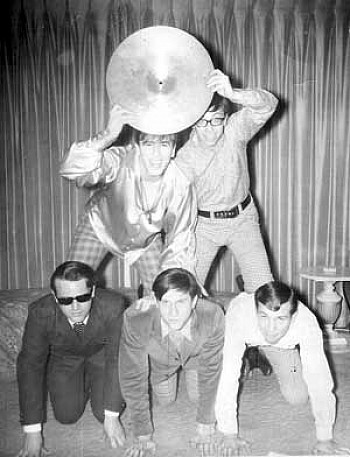 Songfacts: So the record company did not send you out with specific instructions to behave a certain way, or look a certain way?
Songfacts: So the record company did not send you out with specific instructions to behave a certain way, or look a certain way?Floyd: No. I don't think those rules were intact so much in the '60s. I think later on in music, there was a lot more invested in artists, and a lot of artists broke up hotel rooms and got themselves in trouble. I mean, even before us, Jerry Lee Lewis got himself into a bit of trouble. But we were never given instructions, like conduct yourself a certain way, or dress a certain way. No, not at all.
Songfacts: Okay. I'm starting to get the sense that you guys kind of had the songs that you wrote, that you had some ownership of, and then you had the songs that other people wrote that turned out to be many times the manufactured hits. Can you speak on that a little bit?
Floyd: Sure. We had a lot of good songs. And we were headed in a different direction, and we had offers, we had been approached by some other people in the business on the basis of our other music. But things don't always happen in groups the way you want them to. And once we got involved with Jeff and Jerry, some of the guys kind of wanted to stay where we were at the time. They had plans, and they figured it was a springboard for other things. So we wound up compromising with Jeff and Jerry.
Songfacts: Back then, you guys did release songs that were your own compositions, correct?
Floyd: Yes, we did.
Songfacts: And when you were on the road, did you get to play those songs?
Floyd: Yes, we did. We did our own songs, and we fit them in with other things we did. So we'd mix them in with Yardbirds, or Marvin Gaye, or Rascals, or Hendrix. We had a different intent when we started out as musicians. We, like everybody else, wanted to be the next Cream, or the next Hendrix, or the next Beatles, or the next Lovin' Spoonful, more than we wanted to be the Fruitgum Company. But when you have success, a lot of times you ride with it because it's fun, it doesn't happen to everybody, and it seems like it's a segue to better things, to other things in your life. And I guess what we didn't totally give into that whole Bubblegum thing. But we sat back and enjoyed it for a while.
Songfacts: Okay. Can you tell me about the song "Indian Giver"?
Floyd: I believe that was studio guys at that time. Mark sang on that. They kept Mark on the vocals by that point, because they figured he was the one that was going to be least likely to give resistance. And he didn't mind doing what he was doing. And "Indian Giver" was another one of the writers that they brought in. It went with the whole game plan, as I like to say, because obviously they were using a lot of those themes: "1, 2, 3 Red Light," "Simon Says," "May I Take A Giant Step," "Indian Giver," they were using a younger hook to keep the thing going. And they already went so far with it, but that's the most I can say on "Indian Giver," except that The Ramones went on to do it, and had a version of it. So it did influence people after we left the scene.
Songfacts: Like "Simon Says," "1, 2, 3 Red Light," it just seems too easy. These are just children's games, correct?
Floyd: Yeah, and a lot of people read into them. There's that whole story about "1, 2, 3 Red Light" being this underlying date rape song. But you know, that just goes along with people wanting to make more out of things than they really are. I mean, it's like saying when John Lennon said "Lucy In The Sky With Diamonds" wasn't about LSD, or "Little Susie's Dream" by The Tradewinds, because of the initials, LSD, people read into those things. Hey, it's good for promo. People often want to give more meaning to things than they really have. But I think that the record company, they were kind of tied into that whole thing. It was working, and it was selling a lot of records. We were selling a lot of records. I think that they could have had the best of both worlds, but they decided to stay with that. So that was the game plan, basically.
Songfacts: You said there was a story behind "Yummy Yummy Yummy." Can you tell it?
Floyd: The way I heard it was that Joey had brought in a demo of "Yummy, Yummy, Yummy," and often back then the demos were not nearly as sophisticated as what you can do at your house today with ProTools - they want much more finished product these days. But Joey went and he did "Yummy, Yummy, Yummy" as a demo, and Jeff and Jerry said, "Yeah, we're going to take you to the studio and do this." And before they knew it, the demo was out on the market. So it became a big hit, but you know, The Ohio Express wasn't really happy with it going out that way. They never had meant it to go out in the form it did. So it just shows you that often people don't really know what they have, and they don't really understand the business as well as some of these guys who are producing or managing.
Songfacts: You guys shared lead singers with the Ohio Express, correct?
Floyd: No, that's not really true. I don't know where that came from. It happened on a lot of Motown records too: Albums were not yet at their peak. Singles were more important, much more important. And because of that, if they had a track, if they had "Simon Says" or "1, 2, 3 Red Light," they could use those tracks and save time and money and put that on, say, The Ohio Express album, and on our second album they put the track of "Yummy, Yummy, Yummy," and we sang it. But there was really no interchange of singers. Basically what they wanted to do was have all these groups like us and The Ohio Express and Music Explosion come in and do shows, it was supposed to be at Philharmonic Hall at the time. Well, to my knowledge, and to everybody else's knowledge too, there was not a live show. What they basically did was take the tracks, have different people sing on the tracks. They overdubbed applause and a lot of echo so it was supposed to sound like a live show. And I think because of that, somewhere in history, it got a little mixed up.
Songfacts: It interests me that it was very common back then that one group would come up with a song, and then they would share that song, just have it be recorded among different groups on the record label.
Floyd: Well, albums weren't really the genre as much as singles. So you were doing a lot more cuts on an album. Songs were like three minutes, two-thirty, two-fifty. They had to fill two sides of an album, and they would do a lot of throwaway tracks.
Songfacts: You mentioned part of the deal originally was that you guys would get the B-sides.
Floyd: We did have a verbal deal, but it never made it to contract. It never would have flown anyway. I pondered this many times. There were a lot of bands back then that I liked, like The Zombies, for instance. We would play their B-sides and really get into them as musicians. And The Beatles, the B-sides were always a big thing with everybody. When they started turning over "Simon Says," our management and the record company, they went ballistic. They thought it was going to take away from the concentration on "Simon Says" in the sales. In my opinion it could have gone either way. We may have had a two-sided hit. But they started doing their best to stop the radio stations from playing the B-side. And after that, they would put a lot of nonsense stuff on the B-sides of our records, and all the records that came out of that house. It was good for them, because they would take a track and put it on reverse, or they would take some nonsense music and put it on a B-side. They would put the names on them, and they would file them with publishing and BMI, and they would make money off of these other B-sides. That was good for them. It wasn't good for us, because we really didn't get to showcase the stuff we'd like to do.
Songfacts: How does the composer of the B-side get paid? Because if the single is selling, regardless of whether it's selling because of the B-side or not, doesn't the composer get the publishing rights, anyway?
Floyd: Well, back then it was a B-side, so you got paid on the sales of the records. And that was it. That's why it was kind of an open door to do whatever you wanted back then. You don't have that now. And of course, singles were much more prolific than album sales back then.
Songfacts: All right.
Floyd: You know, in my uncle's day, when he was writing, often what they would do – and this was still sneaking into the '60s – these people would put their names on the song. If you had a hit, it was done by 10 people. Often your name will show up on the single, because if somebody got you in the door to get the single recorded, they often wanted a little piece of the action.
Songfacts: Oh, so a writing credit, you mean?
Floyd: Yeah, so they would get writing credit. If you look at "Till Then" or some of the older songs, you'll see it was a Benny, Benjamin, Saul or Marcus, and then what you'll see is Benny, Benjamin, Saul, Marcus, and somebody else on a version, and Benny, Benjamin, and Saul and Marcus and somebody else on another version.
Songfacts: Okay. When did you start hearing the term "Bubblegum Music"?
Floyd: Actually, we didn't hear that 'til later, it's more in retrospect. I think after us, and after the Ohio Express, and after Ron Dante with The Archies, "Sugar, Sugar" and all that stuff. People like to give things tags. Psychedelic music, Jazz Rock, West Coast Rock, East Coast Rock, West Coast Hip-Hop, East Coast Hip-Hop. So it kind of came around to define what people thought fit into a category. So I didn't really hear it until later. I never heard it when we were out there.
Songfacts: And when you say "later," you mean, like, the '70s?
Floyd: Probably not even in the '70s. I wasn't really paying too much attention. My own personal experience was that I didn't hear it 'til more like the late '70s, '80s.
Songfacts: Nobody in 1968 was describing you guys as a Bubblegum band?
Floyd: Whoever coined the phrase did. But I don't know if it really caught on until later. I think what it's really become is a negative phrase with some people, and a lot of the fans don't take it that way. But I think it was really derogatory in the beginning. I mean, you can get into John Coltrane, and you can get into Charlie Byrd, you can get into Weather Report, and you can get into Bob Dylan. But there always existed music that was directly to the people, people who worked 9 to 5 and came home and threw Hank Williams on their record player at the time. They didn't really want to get all that involved. Like Johnny Cash, they wanted to identify with these people. There's always going to be those people who don't want to get too deep into something, and just want to have fun with music. So whatever you label stuff, it always exists.
December 2, 2007.
The 1910 Fruitgum website is 1910fruitgumcompany.com.
More Songwriter Interviews



